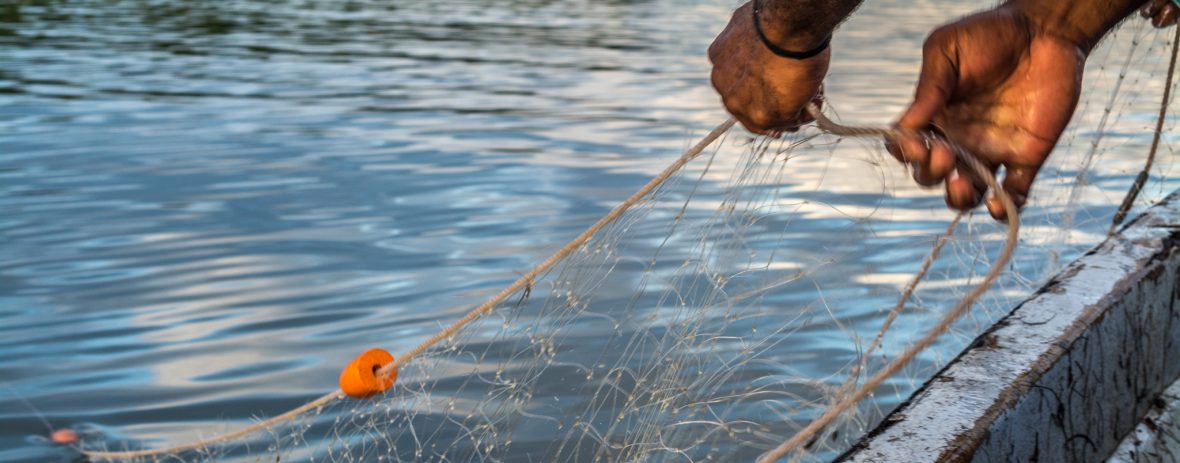SOCPacific

SOCPacific
SOCPacific - A Sea of Connections : Contextualizing Fisheries in the South Pacific Region
Poster résumant les principaux résultats de SocPacific
Résumé
Le Pacifique Sud présente un contexte unique, marqué par un engagement croissant des communautés locales et de leurs représentants politiques dans le domaine de la gestion intégrée des ressources et des espaces maritimes. Ce constat s’applique tout particulièrement au cas de la pêche, l’un des enjeux économiques et politiques les plus importants pour cette région.
Des études récentes ont commencé à prendre en compte les multiples facettes des activités de pêche menées dans le Pacifique en articulant perspectives écologiques et économiques. Le projet vise à élargir cet effort en réintégrant les pêches côtières et hauturières dans un contexte plus large et en explorant le vaste champ de connexions socio-culturelles, géopolitiques et politiques dans lequel les pratiques de pêche se déroulent.
Pour ce faire, le projet propose une analyse interdisciplinaire et multi-niveaux prenant en compte les différentes échelles et dimensions des pêches côtières et hauturières, de leur gestion et de la gouvernance marine dans le Pacifique Sud. Cette analyse se concentrera sur trois zones d’étude : la Nouvelle-Calédonie, le Vanuatu et les îles Fidji où des périodes de terrain seront menées.
Trois thématiques principales seront au cœur des enquêtes transversales du projet :
une anthropologie environnementale des valeurs sociales des lieux et des ressources associés aux pêches hauturières et côtières ;
une écologie socio-politique des connexions entre enjeux de pêche et enjeux de conservation de la nature dans les aires marines protégées ;
une analyse des politiques d’inclusion des activités de pêche dans la planification spatiale marine.
Le projet vise à fournir cinq principaux types de résultats :
La production de policy briefs qui seront diffusées aux différents acteurs régionaux impliqués dans les trois domaines d’investigation du projet, avec un accent particulier sur l’ensemble des connexions dans lequel s’inscrivent les pêches hauturières et côtières.
La facilitation de processus d’échange de savoirs entre les usagers des ressources marines, les étudiants locaux et les autres acteurs de la pêche dans le Pacifique Sud via, par exemple, les perceptions locales des activités de pêche replacées dans leurs contextes d’usages et de valeurs des ressources naturelles, les problématiques associées à la conservation, et les conflits liés aux frontières.
Une participation à l’avancement des recherches interdisciplinaires dans les domaines multisectoriels de la gestion des pêches et de la gouvernance marine.
Une contribution à la construction de nouvelles formes de gouvernance intégrée de la mer, impliquant l’ensemble des acteurs, ainsi que des collaborations étroites entre les états et territoires du Pacifique et l’UE.
Le renforcement des liens existants entre les partenaires français et allemand, dans l’objectif de consolider leurs cadres nationaux de recherche.
Présentation de “Oceania: A Sea of Connections” - Un dossier thématique publié dans la revue Ambio (open access)
Abstract
The South Pacific region represents a unique context in which local communities and their political representatives are increasingly committed to integrated management of marine resources and spaces after a predicted dissolution of related community-based activities in the 1970s. This holds especially true for fisheries, the main field of activity in this oceanscape and a critical component of local livelihoods, national and regional economies, and global fish supplies. Fisheries remain one of the most important concerns on the national and regional policy agendas in the Pacific.
Recent studies have started to take into account the multi-faceted aspects of Pacific fisheries by articulating ecological and economic perspectives. Our project aims at broadening this endeavour by re-embedding coastal and oceanic fisheries in their wider context and by exploring the large web of socio-cultural, geopolitical and policy connections within which fishing practices occur.
For this, we will conduct an interdisciplinary and multi-level analysis across diverse scales and dimensions of fisheries, fisheries management and marine governance in the South Pacific region, including local perceptions and practices, global changes and drivers, and national and regional management frameworks and strategies. This analysis will focus on three study areas: New Caledonia, Vanuatu and Fiji where fieldwork periods will be conducted.
Three thematic areas will be at the core of the project’s cross-sectional investigations:
An environmental anthropology assessment of social values of places and resources in connection with offshore and inshore fisheries;
A socio-political ecology perspective on interwoven fisheries and conservation issues within marine protected areas;
A policy analysis of the inclusion of fisheries in marine spatial planning.
The project outcomes will be five-fold:
The production of policy briefs to be disseminated to regional stakeholders on these three thematic areas, with a spot-light on the neglected ‘sea of connections’ in which fisheries are embedded.
The production of knowledge exchange pathways between local marine resource users, local students and other stakeholders of South Pacific fisheries via, for instance, local perceptions of fishing activities in a broader context of natural resource uses and values, conservation initiatives and issues, and conflicts related to boundaries.
The contribution to the advancement of cross-cutting knowledge in the multi-faceted field of fisheries management and marine governance.
The participation in the endeavour to build new forms of integrative governance of the sea including all stakeholders, and in which both Pacific countries and territories and the European Union are closely working together.
The strengthening of the existing working ties between the French and German partners, to complement respective national research landscapes.
"News and activities" du projet
Responsable du projet (au sein de SENS)
Elodie Fache
Equipe mobilisée au sein de SENS
- Pierre-Yves Le Meur
- Bernard Moizo
- Estienne Rodary
- Marlène Dégremont, doctorante
- Juliette Kon Kam King, doctorante
- Léa Riera, doctorante
- Stéphanie Carrière
Dates début et fin des travaux
mai 2018 — oct. 2022
Terrains
Fidji, Nouvelle-Calédonie, Vanuatu
Partenaires
- Leibniz Centre for Tropical Marine Research (ZMT), Allemagne
- University of the South Pacific (USP), Fidji
- Pacific Community (SPC), Nouvelle-Calédonie
- Fiji Locally Managed Marine Area network (FLMMA), Fidji